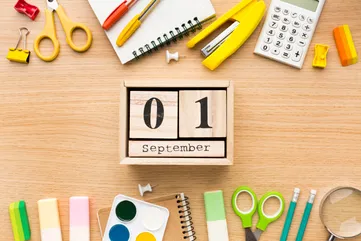Self-Monitoring
Self-monitoring means your teen watches their own behavior like a friendly observer, noticing patterns and making adjustments without constant external reminders.
Why self-monitoring works
Self-monitoring creates feedback loops that drive improvement without external pressure or supervision.
When teens track their own behavior, they develop metacognition and self-awareness. They become scientists of their own experience, testing hypotheses about what works. This skill transfers across all life domains and reduces parent-teen conflict about monitoring.
You're not alone
If you're exhausted from being your teen's external brain, constantly tracking their assignments and behaviors, they need self-monitoring skills. Most teens lack awareness of their patterns unless explicitly taught to observe themselves. This executive function develops slowly without deliberate practice.
What it looks like day to day
Student
Your teen tracks their homework completion rate, notices they miss assignments on Thursdays, and adjusts their routine accordingly.
Parent
You step back from constant checking as your teen develops their own systems for monitoring progress and catching problems early.
Tiny steps to try
Develop self-monitoring gradually.
- 1
Pick one behavior
Start monitoring single behavior (homework completion, screen time, sleep time).
- 2
Simple tracking method
Use phone notes, calendar marks, or basic chart. Complexity kills consistency.
- 3
Daily reflection
Two-minute end-of-day review: "What worked? What didn't? What will I adjust?"
- 4
Pattern recognition
Weekly review of tracking data. What patterns emerge?
- 5
Self-reward system
Teen sets own rewards for meeting self-monitoring goals. Builds internal motivation.
Why external monitoring creates dependence
When parents do all the monitoring, teens never develop internal awareness of their behaviors and progress.
Without self-monitoring:
• Dependence on others for feedback
• Unaware of own patterns
• Can't self-correct problems
• No internal quality control
• Surprised by consequences
• Learned helplessness about change
Self-monitoring builds independence by making teens their own feedback system.
Ready to help your teen thrive?
Get personalized 1-on-1 coaching to build better habits and boost grades. Join 10,000+ families who trust Coachbit.
Frequently Asked Questions
My teen says self-monitoring is annoying. How do I motivate them?
Start with something they care about improving. Frame it as an experiment, not judgment. Keep initial tracking extremely simple - even just yes/no daily. Share how you self-monitor (budget, exercise, work tasks). Emphasize it's about curiosity, not perfection.
Should I check their self-monitoring?
Initially, yes, to ensure accuracy and consistency. Gradually reduce checking as habit forms. The goal is independence, not permanent supervision. If they're tracking honestly, even missed days or poor performance, that's success in self-monitoring.
Related Terms
Executive Function
Executive function is your brain's management system that helps teens plan, focus, remember instructions, and juggle multiple tasks successfully.
Metacognition
Metacognition is thinking about your thinking - understanding how you learn best, monitoring your comprehension, and adjusting strategies accordingly.
Progress Tracking
Progress tracking is systematically monitoring advancement toward goals through measurable indicators, maintaining motivation and enabling strategy adjustments.
Self-Awareness
Self-awareness is recognizing your own emotions, thoughts, values, strengths, and limitations, understanding how they influence behavior and impact others.
Self-Regulation
Self-regulation is the ability to manage emotions, thoughts, and behaviors in different situations, allowing teens to pause between feeling and reacting to make thoughtful choices.
Related Articles

3 Ways an Executive Functioning Coach Can Help Your Child
Discover why executive functioning skills are crucial for your child's success. Learn how an executive functioning coach can make a difference
Read article
Finding Order in the Chaos – Setting up Calendars for Kids
Creating a calendar and daily schedule for kids can be beneficial to manage school, homework, extracurriculars and hobbies. Color-coding and time-blocking are helpful tools for kids with ADHD.
Read article
